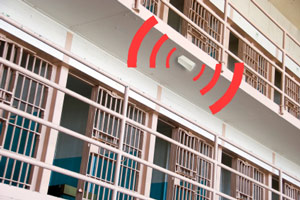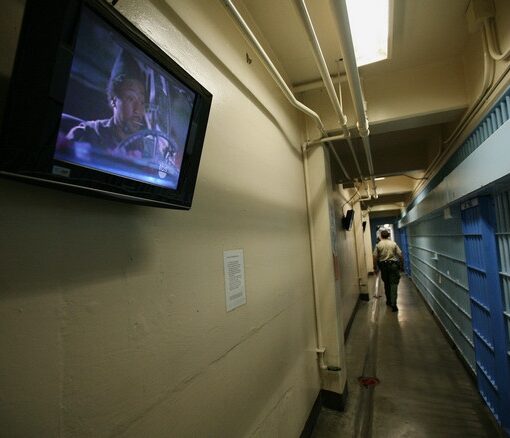 On March 1, 2012 the FCC issued a public notice seeking comments “on concerns and issues related to intentional interruptions of Commercial Mobile Radio Service (CMRS or “wireless service”) by government authorities for the purpose of ensuring public safety.” (GN Docket No. 12-52)
On March 1, 2012 the FCC issued a public notice seeking comments “on concerns and issues related to intentional interruptions of Commercial Mobile Radio Service (CMRS or “wireless service”) by government authorities for the purpose of ensuring public safety.” (GN Docket No. 12-52)
As the notice states, “While the important function that wireless service plays in protecting public safety is undisputed, some commentators, including some law enforcement personnel, have raised concerns that wireless networks can be used in ways that put the public’s safety at risk. Concerns, for example, that wireless service could be used to trigger the detonation of an explosive device or to organize the activities of a violent flash mob have led public authorities in the United States and abroad to consider interrupting wireless service. Last summer, a public agency temporarily interrupted wireless service on parts of a mass transit system based on stated concerns about public safety.”
“Any intentional interruption of wireless service, no matter how brief or localized, raises significant concerns and implicates substantial legal and policy questions. The service interruption last summer drew sharp criticism, and state and local governments have recently grappled with how to address possible future events. We are concerned that there has been insufficient discussion, analysis, and consideration of the questions raised by intentional interruptions of wireless service by government authorities. In this Public Notice, we seek comment on the legal constraints and policy considerations that bear on an intentional interruption of wireless service by government actors for the purpose of ensuring public safety.”
Not surprisingly this request for comments received many responses from public and private organizations both for and against such action and policy. Included amongst the comments submitted were those provided by Global Tel*Link (GTL) and Tecore on the use of managed access technology in prisons to jam contraband cell phone signals.
As we have written previously, GTL and Tecore have partnered to install managed access in the CDCR’s prison facilities across the state of California as part of GTL’s recent contract to provide prison inmate telephone service.
What is interesting about GTL’s comments to the FCC is its recommendation that the FCC require that entities seeking to deploy a wireless interruption system must provide their services through an authorized provider of telecommunications services selected by the correctional facility. That is, that prison payphone companies be the sole provider of such systems to prisons.
GTL’s logic is as follows,”Through judicious application of existing or enhanced standards promulgated by the Office of Engineering and Technology, the Commission can ensure that any system will be installed and operated in the public interest. Permitting entities with no known qualifications to interact with telecommunications service providers or law enforcement agencies, to install and operate sensitive telecommunications infrastructure, borders on the reckless and irresponsible. To this end, the FCC can require that entities seeking to deploy a wireless interruption system must provide their services through an authorized provider of telecommunications services selected by the correctional facility. Such authorizations carry with them financial and technical evaluations, and provide wireless consumers with points of contact for regulatory redress. Coordination with law enforcement and correctional officers – of the sort pursued in the Maryland, Mississippi, and South Carolina tests – should also be required, culminating in written approval from the institution administrator and a contract with the correctional facility.”
Not surprisingly, Tecore has concerns with GTL’s attempt to corner the market on managed access systems deployment within the prison prison industry. In their subsequent comments to FCC they respond to this initiative: “Tecore most strongly disagrees with the portion of GTL’s comments wherein it urges the Commission to use its regulatory authority to “require that entities seeking to deploy a wireless interruption system . . . provide their services through an authorized provider of telecommunications services selected by the correctional facility.”
“Tecore agrees that, given the technological complexities of managed access, “[p]ermitting entities with no known qualifications . . . to install and operate sensitive telecommunications infrastructure” would border on the “reckless and irresponsible.” However, this does not warrant the requirement that corrections officials be precluded from deploying managed access directly, or through any competent contractor, so long as the system can be effectively deployed and managed. Indeed, the upcoming Maryland deployment of the Tecore Managed Access solution would be precluded under GTL’s proposal because the deployment is not being implemented through an inmate telephone service provider. As Tecore has advocated to the Commission in pioneering managed access, the attraction of including an inmate telephone services provider in the equation is that it presents a vehicle for funding the deployment, which is useful for cash-strapped corrections departments. Inmate telephone contractors, nor indeed any other corrections contractor, should not be a required part of any deployment. This is an administrative decision best left to each corrections department.”
With partners like these, who needs enemies?
(Separately in this same submission to the FCC, Tecore also responds in detail to the findings of the recent highly critical CCST report on the CDCR plan to deploy managed access systems.)
- Blockchain System for Compliant Inmate Transactions - March 4, 2025
- Securus Gets the Signal, Eleven Years Later - August 23, 2024
- Multi-Blockchain System for Inmate Forensics - April 2, 2024




